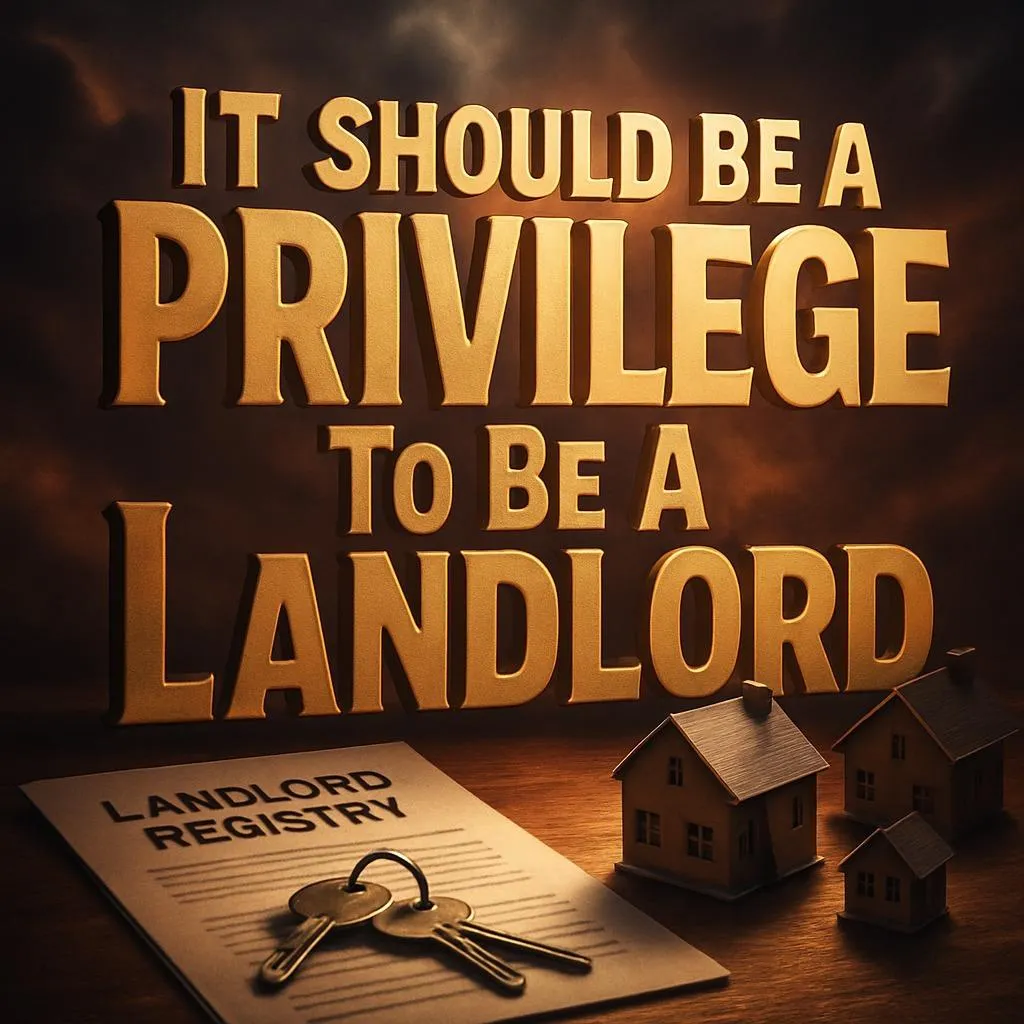
SPRINGFIELD’S LANDLORD REGISTRY DEBATE
SPRINGFIELD’S LANDLORD REGISTRY DEBATE
Accountability or Government Overreach? Springfield, IL is once again at the center of a heated battle over a proposed landlord registry.
First floated two years ago and stalled last year, the ordinance is back and gaining momentum as residents demand more accountability from landlords.
But will this protect tenants, or will it backfire—punishing investors, shrinking the rental market, and driving up housing costs for everyone?
Alderman Roy Williams Jr., the leading proponent of the ordinance, is doubling down:
“Landlords need to be held accountable and we need to fix a lot of our problems through the landlords. It should be a privilege to be a landlord.”
Tenant advocates argue the registry could provide vital protections, especially for vulnerable groups like seniors, disabled residents, and low-income families.
Springfield resident Breonna Roberts said:
"We should have easily accessible information about what our landlords own, what they’ve been reported for, what they’ve failed to do…”
But the backlash from landlords and investors is growing.
One Springfield real estate analyst fired back:
“Being a landlord isn’t a privilege granted by the government—it’s a calculated risk that invests capital into the community. Calling it a privilege dismisses the economic realities and risks involved.”
Critics also say the proposal highlights Illinois’ worsening anti-business climate, which has already pushed investors and jobs out of the state.
An Illinois economic policy expert warned:
“Instead of attracting risk-takers who create opportunity, the government often chases them away. This climate makes investment feel unwelcome and too risky.”
The Financial Fallout: The proposed ordinance would impose fines starting at $300 for non-compliance, a cost many small or out-of-town landlords say will hit them hardest.
A local property manager cautioned:
“If you make it harder and costlier to be a landlord here, fewer people will do it—and that means fewer homes available for renters.”
Dangers Beyond Dollars: One of the most alarming aspects of a public landlord registry is what it exposes about property owners and their families.
By making names and addresses accessible in a centralized database, the city could be handing over a roadmap to bad actors.
Housing attorneys have warned that public registries can open the door to:
Harassment campaigns by disgruntled tenants or activists
Targeted crimes against landlords and their families, especially if home addresses are tied to the registry
Frivolous or malicious complaints that bog down legitimate property management efforts
A Springfield housing attorney explained:
“Holding bad landlords accountable is important, but making all landlords’ personal and property information public could backfire—turning a tool meant for transparency into one that exposes families to harassment and potential danger.”
Overreach Concerns: Not everyone on the council is on board.
Alderman Brad Carlson, who voted NO, argued against the sweeping approach:
“Do we have bad landlords? For sure, but let’s just deal with the bad actors, the bad landlords. Let’s not lock everyone into this blanket approach.”
Alternatives on the Table: Many experts and community leaders are calling for more targeted solutions—including strengthening tenant complaint systems, improving communication between landlords and city officials, and better leveraging existing public records like the Sangamon County property tax database without creating an expansive new registry.
A Warning to the Rest of Illinois: If Springfield passes this registry, other cities like Chicago, Peoria, Champaign, and Decatur may see it as a template.
Replicating it statewide could lead to more landlords exposed, more investment fleeing Illinois, and potentially statewide housing shortages and rent hikes.
Critics warn this could spark a domino effect across Illinois’ rental market—for the worse.
The Bigger Picture: The Springfield landlord registry debate isn’t just about one city—it’s about how Illinois balances tenant protections with investor confidence and economic growth.
The wrong approach could turn Springfield into a place where every property owner fears “Big Brother” is watching, while also creating unintended safety risks for landlords and their families.
What do YOU think?
Is this registry a step toward fairness—or another example of government overreach that will hurt investment, reduce housing options, and expose families to new dangers?
Sources:
• Spencer Davis, WICS/WRSP (July 30–31, 2025)
• Springfield City Council meeting transcripts and statements, 2025
• Sangamon County property tax database
• Interviews with local landlords, property managers, and housing attorneys
• Illinois economic policy experts, 2025

